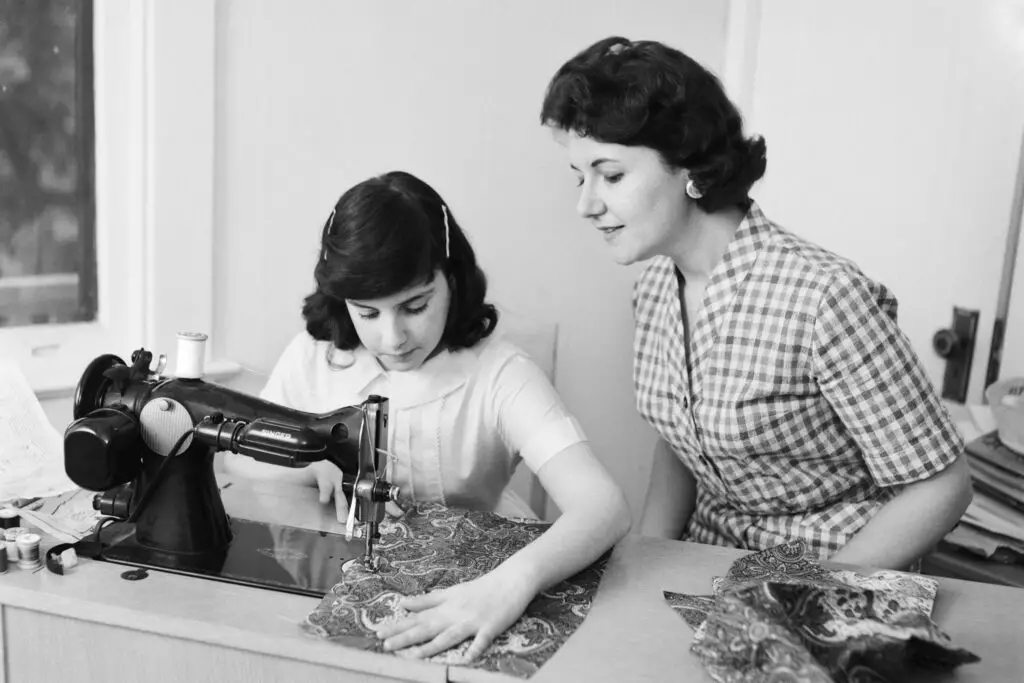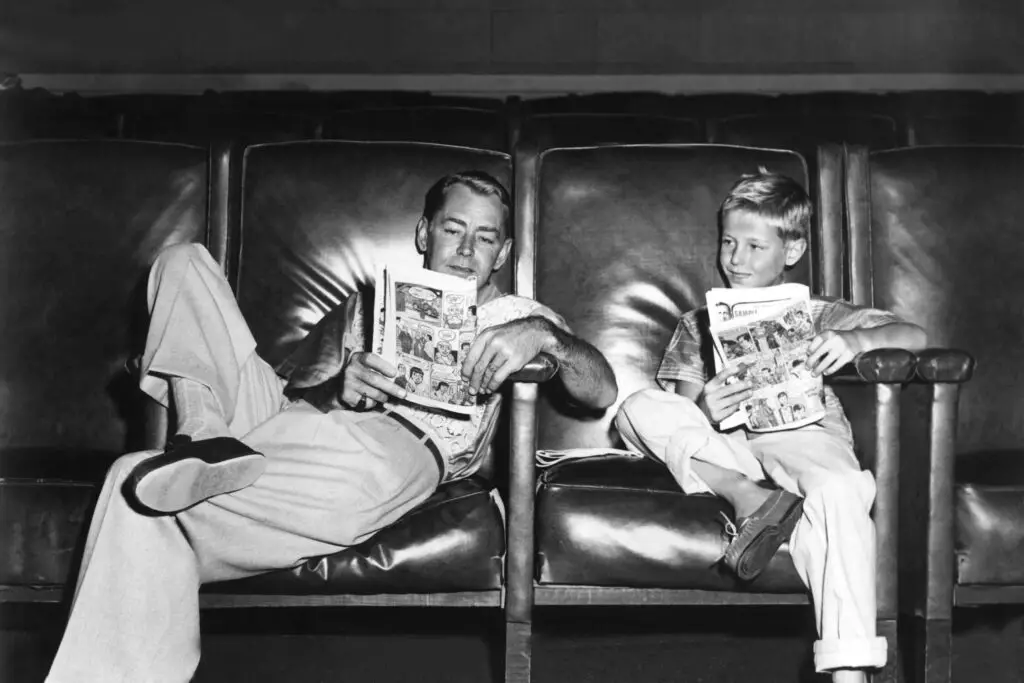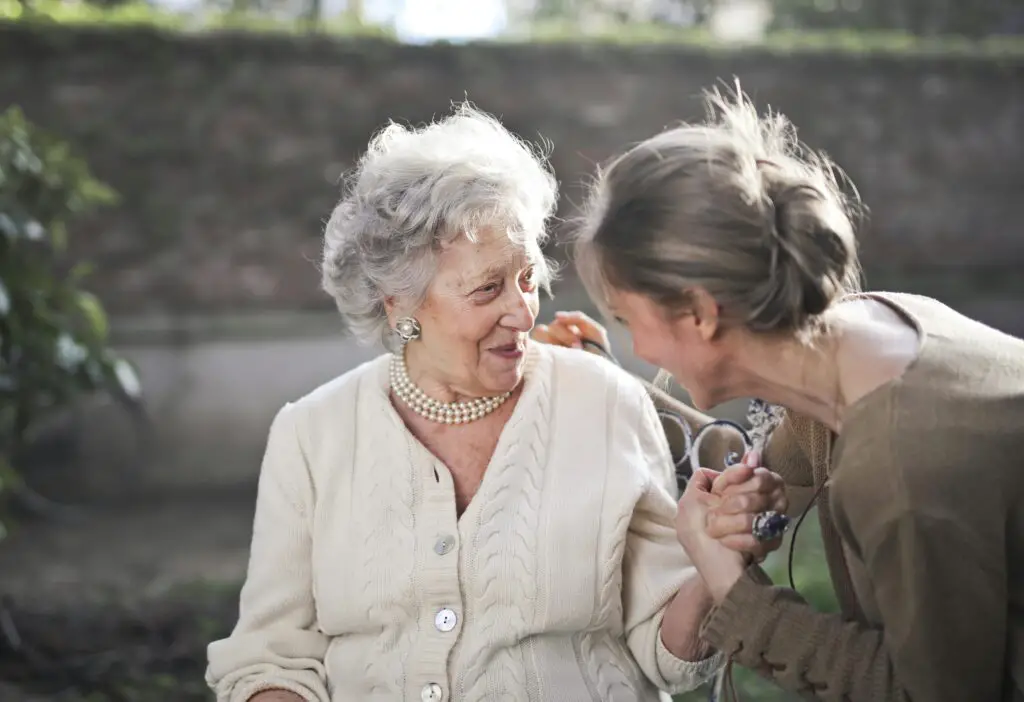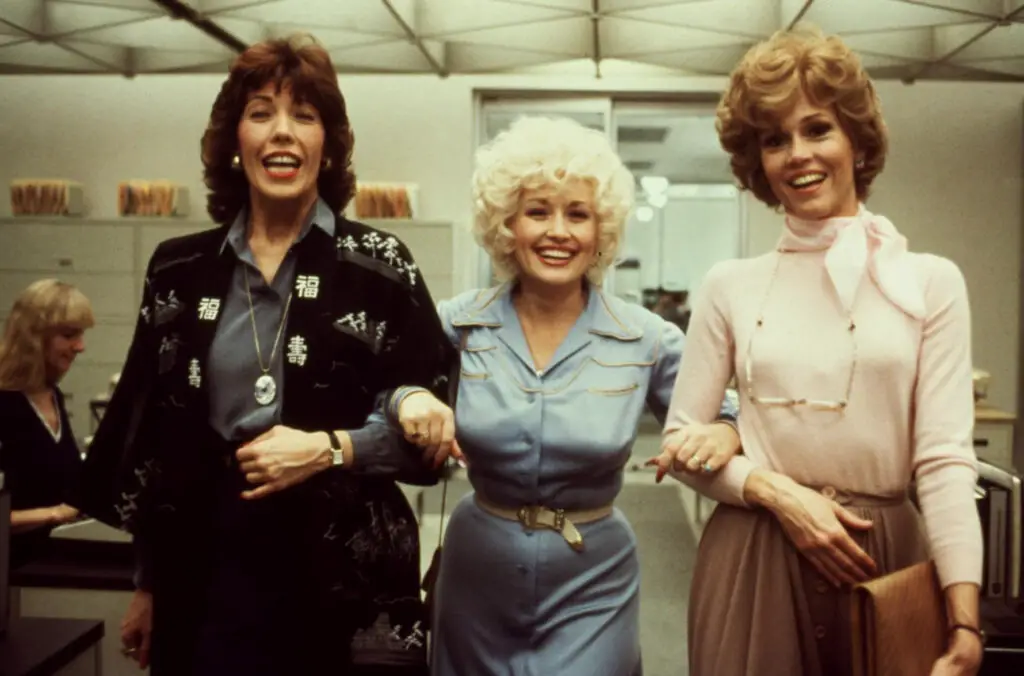1. Family Time Over Screen Time

It wasn’t that long ago when family dinners, game nights, or just sitting together on the porch were the highlights of the day. Elders often put a premium on connecting with loved ones face-to-face, a tradition that helped strengthen bonds and foster a deep sense of togetherness. Nowadays, it feels like we’re all in our own little worlds, glued to screens—whether it’s our phones, computers, or TV. The pressure of work and outside commitments, along with the lure of constant digital stimulation, has made it harder to carve out meaningful time with family says BuzzFeed.
Yet, looking back, these moments with family were the foundation of strong relationships. They didn’t have the distractions we do today, and they knew how to slow down and enjoy the people they loved. If we could embrace those simpler moments more often, maybe we’d find more joy in our day-to-day lives. The beauty of sitting around the dinner table and just talking is something we’ve lost sight of, but it’s never too late to start rebuilding it adds Upworthy.
2. Writing Letters Instead of Sending Texts

Before the era of instant messages and emojis, people took the time to write letters—thoughtful, heartfelt letters that showed true effort. Whether it was a thank-you note, a birthday card, or just a simple “thinking of you,” sending a letter was a way to deeply connect with someone. Each word was carefully chosen, and the anticipation of receiving a letter in the mail made it even more special. These letters weren’t just a form of communication; they were cherished keepsakes that people could revisit shares Business Insider.
These days, text messages and social media posts are the norm, and while they’re convenient, they often lack the personal touch that a handwritten letter provides. When was the last time you sat down with pen and paper to write a letter to a loved one? While texting is faster, there’s something timeless and beautiful about putting your thoughts into words that can be physically held and saved says Tinybeans.
3. Respecting Quiet Time

Elders knew the importance of quiet time—a time to reflect, recharge, or simply be still without the need for constant noise or stimulation. Whether it was taking a walk in nature, enjoying a book by the fire, or meditating, quiet moments allowed them to stay grounded. In today’s fast-paced world, we often feel guilty for seeking out solitude, but those quiet intervals were once considered essential for mental health and well-being.
Now, it feels like silence has become a rare commodity, something we avoid at all costs. The constant hum of devices and the pressure to be constantly entertained has made it difficult for many to embrace stillness. But the truth is, in those quiet moments, people can hear their own thoughts, process their emotions, and find peace amidst the chaos. Maybe we should take a page out of our elders’ book and allow ourselves a little more quiet time.
4. Learning Practical Life Skills

From sewing on a button to fixing a leaky faucet, elders were often masters of practical life skills. They didn’t just rely on others to solve everyday problems—they learned how to handle things themselves. It wasn’t always easy, but these skills gave them a sense of accomplishment and self-sufficiency. They understood that the more you could do on your own, the less dependent you were on outside help.
In today’s world, we’ve become so accustomed to outsourcing tasks that many of these skills have been lost. From ordering groceries online to hiring a handyman for the smallest repairs, it’s easy to overlook the importance of learning how to handle basic tasks. But the sense of pride and empowerment that comes from solving problems on your own is something we could all benefit from. It’s never too late to pick up a new skill.
5. Saying “Please” and “Thank You”

Simple manners like saying “please” and “thank you” used to be a cornerstone of daily interactions. Elders took pride in teaching these basic courtesies to the younger generation, as they were seen as a reflection of respect and kindness. A sincere “thank you” showed appreciation, and a polite “please” was a way to acknowledge the person you were addressing. These small gestures made a big impact and helped to build trust and respect in relationships.
Today, it seems like manners have taken a back seat, especially in our increasingly fast-paced and digital world. People often communicate with minimal courtesy, or worse, seem to take kindness for granted. Bringing back these basic forms of respect in everyday conversations can go a long way in improving how we interact with each other. It’s the little things that make us feel valued, and something as simple as saying “thank you” can brighten someone’s day.
6. Taking the Time to Cook from Scratch

Before fast food chains and microwave meals dominated the scene, cooking from scratch was the norm. Elders would spend time in the kitchen preparing meals that not only nourished the body but also the soul. Food wasn’t just fuel; it was an experience, something to savor and share with loved ones. The process of chopping, stirring, and tasting was often as satisfying as the final dish itself.
Fast-forward to today, and we’ve become accustomed to quick, pre-packaged meals that save us time but often sacrifice quality. While these conveniences are helpful, they often come at the cost of health, and more importantly, the joy of cooking. By slowing down and taking the time to prepare a meal from scratch, we reconnect with ourselves and our traditions. Cooking can be an act of love, creativity, and mindfulness—something we could all use more of.
7. Spending Time Outdoors

There was a time when elders made it a point to spend a significant amount of time outdoors. Whether it was gardening, walking, or simply sitting on the porch to enjoy the fresh air, they understood the value of nature. It wasn’t just about getting some exercise—it was about rejuvenating the spirit and clearing the mind. Time spent outside was seen as a necessary part of daily life.
Today, many of us spend most of our days indoors, plugged into technology or absorbed in work. While the convenience of modern life has its perks, it’s easy to forget the importance of stepping outside. Nature has a way of grounding us and reminding us of life’s simple pleasures. Taking a few moments to get outside each day can do wonders for our mood and well-being.
8. Reading for Pleasure

Reading was once a beloved pastime for many, and elders often made time for it each day. They understood that books had the power to expand the mind, offer new perspectives, and provide a much-needed escape. Whether it was fiction, history, or poetry, reading offered a chance to slow down and engage in thoughtful reflection.
In the digital age, reading has often been replaced by endless scrolling through social media or watching TV. While these activities are entertaining, they don’t provide the same mental stimulation or sense of accomplishment as finishing a good book. Rediscovering the joy of reading can open doors to new ideas, stories, and experiences that we might otherwise miss. It’s time to put down the phone and pick up a book once in a while.
9. Visiting Friends and Neighbors

In days gone by, it was common for elders to pay regular visits to friends, family, and neighbors. They’d stop by for coffee, share stories, and check in on one another. Socializing wasn’t something that had to be planned—it was spontaneous, and it helped create a strong sense of community. These visits weren’t just about socializing—they were a way to stay connected and offer support during tough times.
In today’s busy world, it feels like visiting people has become a rarity. Everyone’s schedule is packed, and it’s easier to send a text or email than to make the effort to show up in person. Yet, these face-to-face interactions are the foundation of deep, meaningful relationships. Next time you’re thinking of catching up, consider paying a visit instead of just sending a message.
10. Giving Back to the Community

For many elders, giving back to the community was a way of life. They volunteered, donated, or simply helped their neighbors in times of need. They believed in the power of supporting each other and understood that the community was stronger when everyone pitched in. Whether it was helping with a fundraiser, lending a hand during a crisis, or just offering a kind word, these small acts of service were woven into their daily routines.
In the modern era, while people still volunteer, there’s a tendency to get caught up in our own lives and forget the value of contributing to the greater good. It’s easy to become absorbed in personal success, but taking the time to give back enriches our lives and the lives of others. Community involvement doesn’t have to be grandiose; even the smallest act can have a lasting impact. Let’s bring back the spirit of giving.
11. Dressing with Care

Elders often took great care in how they dressed, considering it a sign of respect for themselves and others. Whether it was a nice shirt for Sunday service or simply dressing neatly for an afternoon out, they understood the power of appearance. Clothes weren’t just about fashion; they were a form of self-expression and an extension of how they viewed the world. A well-chosen outfit could brighten someone’s day, and looking your best often helped boost confidence.
Today, casual dress has become the norm, and while there’s nothing wrong with comfort, it’s easy to forget how dressing with intention can elevate our mood and interactions. A little extra effort in how we present ourselves can make a big difference in how we feel and how others perceive us. It’s about finding a balance between comfort and style and remembering that how we dress can reflect the respect we have for ourselves and others.
12. Maintaining a Strong Work Ethic

Elders had a strong work ethic, often dedicating themselves fully to their jobs, whether they were at a factory, in an office, or running their own businesses. They believed in doing their best, taking pride in their work, and following through on commitments. Their sense of duty was rooted in a belief that hard work was the path to success, and they instilled these values in future generations.
In today’s fast-paced, sometimes demanding world, it’s easy to lose sight of these values. With a focus on shortcuts and immediate gratification, some have forgotten the value of perseverance and dedication. While we still work hard, it’s important to remember that the quality of our work reflects who we are. Let’s bring back that old-school pride in our labor, whether it’s in the office, at home, or in our personal lives.
13. Taking Care of Mental Health

Long before mental health awareness became a prominent issue, elders understood the importance of taking care of their mental well-being, even if it wasn’t discussed as openly as it is now. They might have relied on their faith, close-knit families, or outdoor activities to stay grounded. Though there was less formal language around it, they knew that peace of mind was just as important as physical health.
In contrast, today’s society often emphasizes productivity over personal well-being, and mental health issues are sometimes pushed aside or ignored. The stigma around talking about mental health may have diminished, but we still struggle with making time for self-care. Taking a moment to pause, talk with loved ones, or even seek professional help is something we can all do to improve our mental health. Our elders might not have had all the words for it, but they certainly had the right idea.
14. Honoring Traditions

Elders had a deep respect for traditions, whether it was celebrating holidays, practicing cultural rituals, or following family customs. These traditions created a sense of continuity and belonging, offering a link between generations. They understood that traditions weren’t just about keeping the past alive; they were a way of passing down values, stories, and a sense of identity. Whether it was gathering for a holiday meal or maintaining certain routines, these rituals connected families and communities in meaningful ways.
In today’s world, many traditions have started to fade into the background as the demands of modern life take center stage. We often find ourselves too busy or too distracted to keep up with the practices that once brought us together. However, embracing these traditions—whether big or small—can help us feel rooted in something larger than ourselves. By honoring our past and the traditions of those who came before us, we create a stronger sense of community and identity for future generations.
